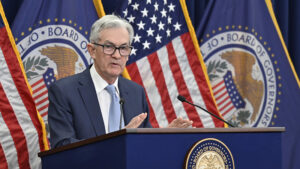DFMs and fund managers are taking a nuanced view on how binary of an outcome a Covid-19 vaccine would be for markets, despite talk of a strong rally from the pandemic’s underperformers once approval is granted for a potential immunisation.
In an analyst note from late September, Jefferies stated the confidence resulting from a vaccine “could quite quickly result in some of the damage to the markets being undone”.
It said share prices currently reflect a company’s fortunes during the pandemic, pointing to Ocado’s 2022 EV/sales of circa 70x. “This is an unprecedented level with other pure-play tech businesses valued on between 20x and 30x.” In contrast, Greggs had seen its one-year forward PE ratio fall from 27x to a 13x recovered 2022 PE ratio today.
But DFMs say any sharp market reaction may be short lived and could be dampened by the nature of the vaccine.
See also: Healthcare fund managers caution against getting caught up in Covid-19 vaccine hype
‘Trying to play the vaccine game could leave you trapped in noise’
Quilter Investors is not positioning for “a speculative event such as the discovery of a vaccine”, says portfolio manager Paul Craig (pictured). “Trying to play the vaccine game could leave you trapped in noise.”
Craig points to Ninety One Global Special Situations as a potential beneficiary if a vaccine is found because it is plugged into sectors that have fared poorly since the global shutdown, like hospitality and tourism.
In contrast, he expects the quality growth story to continue for some time to come if there is no vaccine or a long delay in bringing one to market. Sands Global Leaders would be well placed in this scenario given its heavy weighting to technology and healthcare he says.
See also: Does the departure of value stalwarts signal an end for the investment style?
Phase III drug trials are not simple formalities
Tilney head of multi-asset Ben Seager-Scott reckons there is a lot of optimism in markets that phase III drug trials “are simply formalities and that they’ll quickly be approved, everyone gets vaccinated and this is all over”.
Seager-Scott raises concerns the vaccine may not be 100% effective, that immunity may be temporary and that distribution may prove challenging, particularly in emerging markets, which could upset supply chains.
“Even if a vaccine trial is successful, I think as investors start to focus on these issues, that will take the shine off any short-term surge,” he says. The market reaction to a trial failure could be “considerably more severe than the positive reaction to a successful trial”, he adds.
But the Jefferies note reckoned markets would take a “shoot first, ask questions later” approach. “The vaccine will offer the market a certainty that (new)-normality can resume, at some point. When that point is probably doesn’t much matter from a valuation perspective: that’s in the nature of a DCF,” the introduction to the note said.
Better vaccine candidates are further behind in the pipeline
The central case in the Aviva Investors multi-asset team is that at least one of the phase III trials currently underway demonstrate protection against the most serious Covid-19 symptoms within the next couple of months.
That is different to sterilising immunity, which would protect against the possibility of infection, says head of investment strategy Ian Pizer.
In Aviva Investors’ central case, vaccination programmes could begin before the year’s end, but Pizer reckons more effective vaccines could be approved in Q1 2021.
He says: “Some of the most promising early data comes from candidates which are a few months in development behind those who are most advanced in phase III trials and so it may be that the first vaccines to be approved are later succeeded by superior candidates.”
See also: Liontrust’s Phil Milburn: Vaccine will be here by yearend but don’t expect a V-shaped recovery
DFMs neutral on equities
Nutmeg director of investment strategy Brad Holland also reckons the outlook may be less binary than many believe.
“With or without a vaccine, medical and government policy responses now benefit from the steep learning curve of 2020. That should prevent a repeat of this year’s macro stop-shock,” Holland says.
Nutmeg is currently neutrally weighted in global equities, although with US and technology overweights, and is underweight bonds, preferring credit ETFs over government bonds.
Tilney is likewise fairly neutral on equities with Seager-Scott saying they favour funds exposed to quality companies where returns are not predicated on a rapid return to economic growth. Tilney has sold out completely from high yield and reduced some credit exposure with the proceeds sitting in a “modest” tactical cash reserve in case investment opportunities present themselves.
See also: Malcolm Schembri: Snatching at coronavirus hope could hurt investors
Cyclical sectors could rally sharply
But not all DFMs are dismissive of how binary a vaccine would be.
EQ Investors chief investment strategist Kasim Zafar reckons it would be bullish for markets with highly cyclical industries like airlines, hotels, restaurants and banks rallying sharply.
But Zafar still has a caveat.
“If efficacy turns out to be long in duration, we think support for markets will be durable. If efficacy turns out to be short in duration and therefore needing several vaccine shots each year, it could ultimately weaken sentiment.”
EQ’s invests in four companies directly through its Positive Impact portfolios that have vaccine candidates undergoing phase III trials.
Over at Janus Henderson, UK equities manager Luke Newman has shifted long positions away from the growth skew that had been in place for the last several years. Instead, portfolios are now balanced around 50/50 between value and growth.
He reckons hospitality, airlines, leisure, physical retail and events would rally on a vaccine as investors discount a loosening of restrictions over the following 12 to 18 months.
“Crucially though we need to see that companies that come into the long side of the portfolio have the ability to emerge from this crisis in a stronger competitive position versus peers,” Newman says.
He likes Ryanair for its exposure to the leisure market, but has paired this position against shorts in airlines and hotels more reliant on the resumption of corporate travel, which he reckons will not return quickly to previous levels of demand.
He has also added to to Coca-Cola and Pernod Ricard in recent weeks, which have suffered from the lockdown due to their reliance on “away from home” consumption.
Jefferies listed Jet2, BHP, Amadeus and even Cineworld among the stocks it expects to outperform if a vaccine arrives. It reiterated a buy rating on Cineworld on Monday even after its announcement over the weekend that it would be temporarily closing its cinemas as the new James Bond film, No Time to Die, becomes the latest to delay its release.
B&M, gold and Domino’s were among the stocks it expected to underperform on a Covid-19 vaccine.
See also: Covid vaccine and rising inflation could provide a cure for flatlining value








